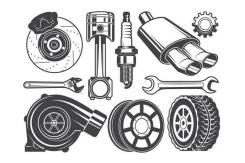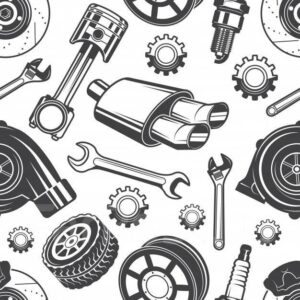What Does a Urologist Do? Everything You Need to Know
When it comes to healthcare, most of us think of visiting a general physician for regular illnesses, or perhaps a dentist for toothaches. But when the issue involves the kidneys, urinary tract, bladder, or male reproductive organs, the expert you need is a urologist. Urologists are specialized doctors who diagnose and treat a wide range of conditions related to the urinary system, and their role is far more important than many people realize.
Understanding when and why you should see a urologist could make a real difference in managing your health — especially if you’re dealing with symptoms that impact your daily life.
Who is a Urologist?
A urologist is a medical doctor who specializes in the urinary tract system, which includes the kidneys, ureters, bladder, and urethra. For men, this also includes the prostate and reproductive organs. Urologists undergo years of medical training and specialized education to treat both common and complex conditions. They work with patients of all genders and ages, helping them overcome everything from painful kidney stones to prostate issues, bladder infections, and even urologic cancers.
What Conditions Do Urologists Treat?
The scope of a urologist’s practice is wide, covering several major areas of the urinary and reproductive systems. Some of the most common conditions treated by urologists include:
- Kidney Stones: Sharp, severe back or side pain is often a sign of kidney stones. A kidney stone doctor in Jaipur like Dr. Saurabh Jain offers advanced, minimally invasive treatments to remove or break down these stones effectively.
- Urinary Tract Infections (UTIs): These are more common in women but can also occur in men, particularly in the bladder or kidneys.
- Prostate Enlargement: As men age, the prostate can grow and cause urinary issues. Urologists provide medication and laser procedures to treat this safely.
- Incontinence: Loss of bladder control can affect both men and women, leading to discomfort and embarrassment.
- Urethral Stricture: Narrowing of the urethra that makes urination painful and difficult.
- Erectile Dysfunction and Male Infertility: Urologists provide treatment plans that address physical, hormonal, and psychological factors.
- Bladder or Kidney Cancer: Early diagnosis and treatment of urinary cancers can significantly improve survival rates.
- Flank Pain: Pain in the sides or lower back can sometimes indicate kidney problems or obstruction in the urinary tract.
When Should You See a Urologist?
Most people are unsure when it’s time to visit a urologist. Here are some warning signs:
- Blood in the urine
- Pain or burning sensation during urination
- Frequent urge to urinate, especially at night
- Difficulty starting urination or weak urine flow
- Persistent back or side pain
- Erectile or fertility issues in men
- Sudden testicular pain or swelling
If any of these symptoms persist, it’s time to consult a qualified urologist in Jaipur or your local area.
Diagnostic Tests and Procedures
To determine the exact cause of symptoms, urologists use a combination of diagnostic tools, such as:
- Urinalysis: Tests for infection, blood, or abnormalities in urine.
- Ultrasound or CT Scan: Helps visualize stones, tumors, or abnormalities.
- Cystoscopy: A thin tube with a camera is inserted into the bladder for inspection.
- Urodynamic Tests: Evaluate bladder function and urine flow.
These tools allow the urologist to arrive at an accurate diagnosis and create a treatment plan suited to the individual’s condition.
Advanced Treatment Options
The field of urology has witnessed significant advancements in recent years. Today’s urologists use minimally invasive techniques, laser surgeries, and robotics to treat complex conditions with less pain and faster recovery. For example, Kidney Stone doctor in Jaipur is now largely performed using laser lithotripsy or shockwave therapy, which eliminate the need for open surgery.
Other advanced treatments include:
- Laser Prostate Surgery: For enlarged prostate with minimal side effects
- Urethral Dilation or Surgery: For treating strictures in the urethra
- Laparoscopic Kidney Surgery: Used in cases of kidney cancer or obstruction
- Microsurgical Varicocelectomy: For male infertility caused by varicocele
With these innovations, patients now experience faster healing, fewer complications, and reduced hospital stays.
Men’s Health and Urology
Men tend to avoid visiting doctors, especially for issues involving reproductive or urinary health. But conditions like prostate enlargement, testicular pain, or difficulty urinating are not only uncomfortable—they may also be signs of more serious issues. Early consultation with a urologist ensures peace of mind and timely treatment.
Women and Urology
Contrary to popular belief, urologists are not only for men. Women often suffer from urinary tract infections, bladder incontinence, and pelvic organ prolapse. A visit to a skilled urologist can help manage these conditions effectively, improving daily comfort and long-term health.
Conclusion
Urologists are more than just specialists; they are problem-solvers who help patients regain control over critical aspects of their health. From managing kidney stones to diagnosing serious cancers, their role is vital. If you’re facing any urinary symptoms, consulting a urologist could help you get back to a normal, pain-free life. Don’t ignore the signs — seek professional help early and make your health a priority.













